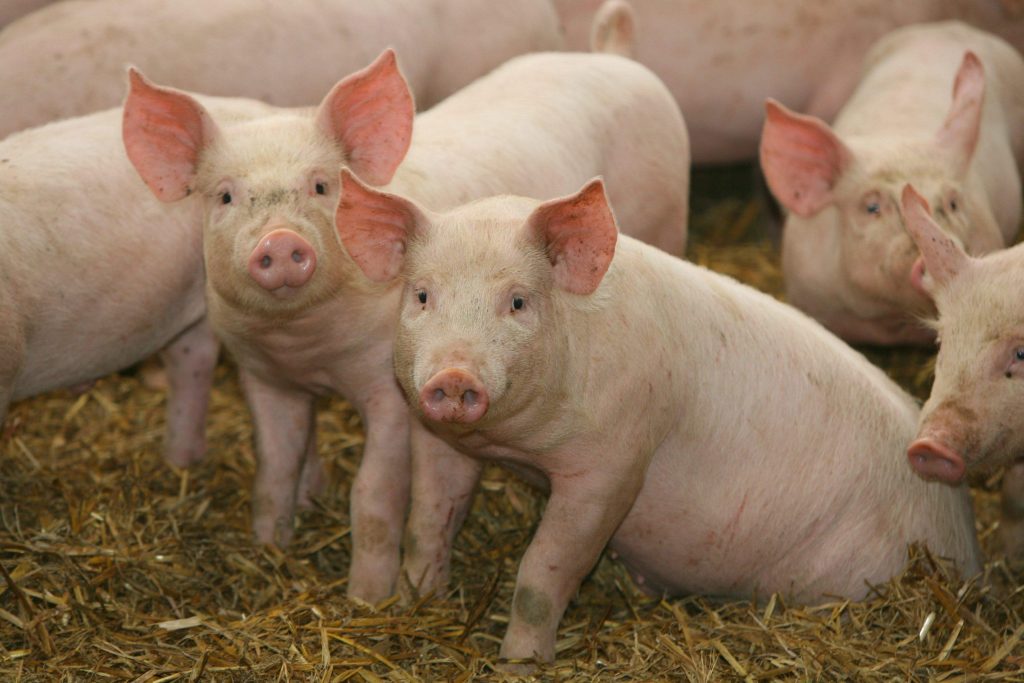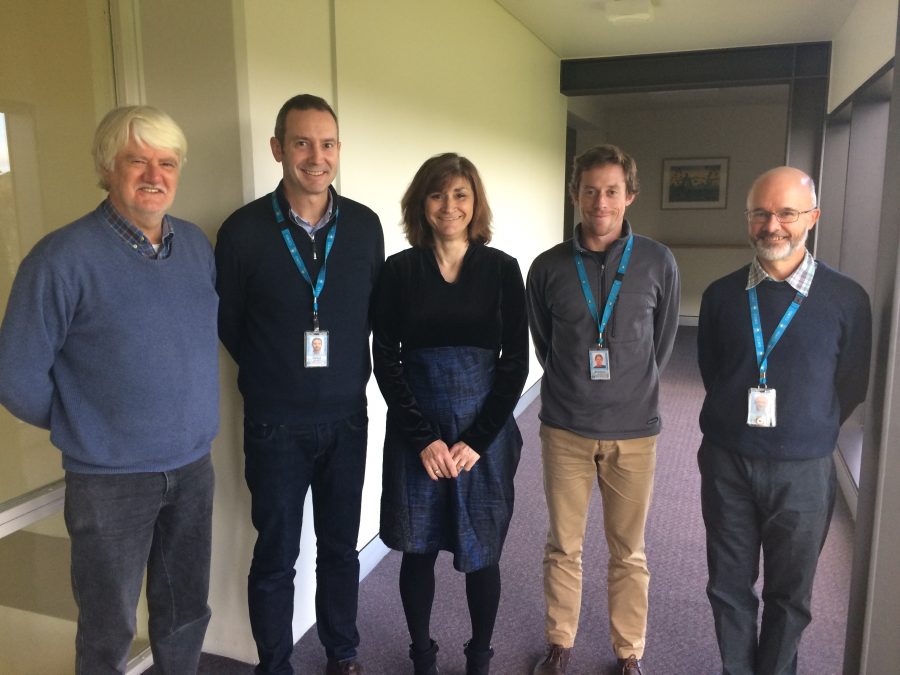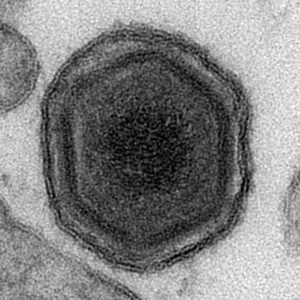
Two pigs looking directly into the camera, with other pigs around them.
New research may assist with the development of a vaccine for African Swine Fever in pigs. Credit: K-State Research and Extension.
Vaccines are one of the most important developments in medical history. They provide successful and cost-effective medical intervention and have dramatically reduced the incidence of infectious diseases that have killed hundreds of millions of people.
Vaccination is also an effective way to protect our livestock and companion animals from life-threatening diseases.
In fact, more animals are vaccinated each year than humans.
It is no simple feat to develop a new vaccine, but scientists at our national biocontainment facility, Australian Animal Health Laboratory (AAHL), are not letting that stop them. Our researchers, along with colleagues from Kansas State University and Lawrence Livermore National Laboratory, have presented new genetic data that may hold the key to developing a vaccine for African Swine Fever (ASF) virus, in a recently published paper.

Five people standing together in a corridor inside the Australian Animal Health Laboratory.
Members of the research team based at AAHL. (From left to right) John White, David Williams, Andrea Certoma, Brenton Rowe, John Bingham.
ASF is a terrible disease that causes internal bleeding and often the poor infected pig doesn’t survive. In June this year, 10 000 pigs had to be culled in Latvia as part of the control measures imposed to stop the spread of the disease to other countries.
In Australia, we have 20 million feral pigs as well as around 5 million farmed pigs, so if ASF virus arrives it may very difficult to eradicate.
The study identified a set of common genetic responses to ASF virus in pigs, providing insight into how the immune system responds to infection and how it influences the replication of the virus in the host.
Traditionally a vaccine causes our immune system to mount a response to produce antibodies to prevent infection and disease.
Our scientists can now look at developing a vaccine that can target those genetic responses, helping to stimulate the immune system into fighting the ASF virus.
“Despite many years of trying, there are no effective treatments or vaccines available for ASF, so disease control is based on the enforcement of strict quarantine and stamping out measures, ” explained AAHL scientist Dr David Williams.

A hexagon shaped virus particle with five rings of different coloured tissue.
Electron micrograph of an African Swine Fever virus particle. CC BY-SA 3.0
“The impacts of ASF include sickness and death in domestic pigs, loss of trade and the costs associated with outbreak response and eradication measures.
“The availability of a vaccine and better diagnostic capability would go a long way towards halting the spread of ASF and managing future outbreaks,” he said.
ASF has not yet been detected in Australia or the Asia-Pacific region however, in recent years it has emerged from Africa into eastern Europe and spread steadily across continental Europe, and there is growing concern it will continue to China and beyond. China has roughly half of the world’s ~1 billion domestic pig population and emergence of ASF there could potentially have major socioeconomic consequences.
That is why it is important for our scientists to be conducting research on diseases like this that could devastate our livestock industries should they reach our shores.
AAHL provides the secure environment for research on infectious diseases and development of diagnostic tests and vaccines, ensuring we are prepared in the event of emergency animal disease outbreaks.
“We will continue working with the genetic information we have identified to further our understanding of this disease and work towards a better understanding of what makes a good vaccine for ASF.”


We research the most dangerous infectious agents in the world